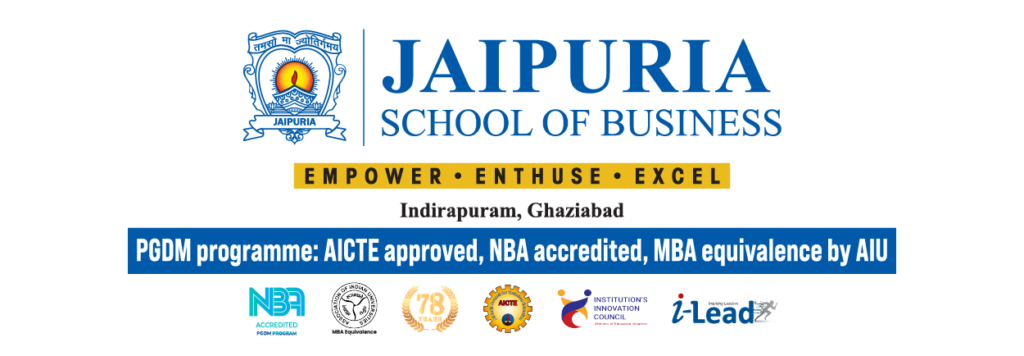Introduction:
Predictive analytics is transforming the financial landscape by enabling organizations to make data-driven decisions with unparalleled accuracy. At JSB, the business schools in delhi ncr where businesses face increasing market complexities, predictive analytics has become indispensable, especially in financial forecasting. This article explores its significance and highlights how learning from the top business analytics institutes can empower professionals to master this cutting-edge skill.
Understanding Predictive Analytics
What is Predictive Analytics?
Predictive analytics involves using historical data, statistical algorithms, and machine learning techniques to predict future outcomes. It allows financial professionals to anticipate market trends, manage risks, and allocate resources efficiently.
Key Components of Predictive Analytics
Data Collection and Preparation
High-quality data serves as the foundation for predictive models. Businesses rely on advanced tools and strategies to gather, clean, and prepare data.
Algorithm Selection
Machine learning algorithms such as regression analysis, decision trees, and neural networks play a critical role in deriving insights.
Model Validation
Ensuring the accuracy and reliability of predictive models is vital for effective decision-making.
The Role of Predictive Analytics in Financial Forecasting
Financial forecasting relies on predictive analytics to deliver precise insights and actionable outcomes. Here are some ways it is reshaping the industry:
Enhanced Risk Management
Predictive analytics enables organizations to identify potential financial risks and develop strategies to mitigate them. From fraud detection to market volatility analysis, it provides a proactive approach to risk management.
Improved Budgeting and Planning
By analyzing historical spending patterns and market conditions, predictive models help in creating more accurate budgets and financial plans.
Real-Time Decision-Making
Predictive analytics facilitates real-time decision-making by integrating live data streams with forecasting models, allowing businesses to respond swiftly to changing circumstances.
Why Learn Predictive Analytics?
Professionals skilled in predictive analytics are in high demand across industries. The financial sector, in particular, seeks experts who can leverage data to optimize operations and improve profitability.
Career Opportunities in Predictive Analytics
- Data Analyst
- Financial Forecaster
- Risk Manager
- Investment Analyst
Leveraging Learning from Top Institutes
Several prestigious institutes specialize in business analytics and equip students with the skills needed to thrive in this dynamic field.
Top Features of Leading Analytics Institutes
The leading business analytics institutes in Ghaziabad offer comprehensive programs designed to meet industry demands. Key features include:
Industry-Relevant Curriculum
Programs focus on practical applications of analytics in business and finance, ensuring students are industry-ready.
Hands-On Training
From working with advanced tools like Python and R to applying algorithms in real-world scenarios, hands-on training is integral to these programs.
Placement Support
Reputed institutes have strong industry connections and provide placement support to ensure successful career transitions for their students.
How Predictive Analytics is Taught
Data Analytics Techniques
Courses emphasize key techniques such as data visualization, regression analysis, and predictive modeling.
Software and Tools Training
Students gain proficiency in tools like Tableau, Excel, SAS, and Python, critical for analyzing and presenting data effectively.
Case Studies and Live Projects
Real-world projects help learners apply their knowledge in practical settings, bridging the gap between theory and practice.
Key Skills for Mastering Predictive Analytics
To excel in predictive analytics, learners should focus on developing the following skills:
- Analytical Thinking
- Statistical Knowledge
- Proficiency in Tools and Software
- Communication Skills
- The Impact of Predictive Analytics on Financial Success
Enhancing Decision-Making
Organizations that leverage predictive analytics are better equipped to make informed decisions, leading to improved financial outcomes.
Gaining Competitive Advantage
Predictive models provide businesses with a competitive edge by enabling them to anticipate market trends and customer needs.
Optimizing Resource Allocation
By predicting demand and analyzing operational data, organizations can allocate resources more effectively, reducing waste and maximizing profitability.
Future Trends in Predictive Analytics
The field of predictive analytics continues to evolve, with emerging trends shaping its future:
Artificial Intelligence and Machine Learning
Advanced AI-driven algorithms are enhancing predictive accuracy and expanding applications across industries.
Big Data Integration
With the growing volume of data, integrating big data with predictive analytics is becoming increasingly essential.
Cloud-Based Analytics
Cloud platforms are making analytics more accessible and scalable for businesses of all sizes.
Conclusion
Predictive analytics is revolutionizing financial forecasting by offering insights that empower businesses to navigate complexities with confidence. At JSB, the business schools in delhi nc where learning from top analytics institutes equips professionals with the expertise to harness the power of data and excel in their careers.

